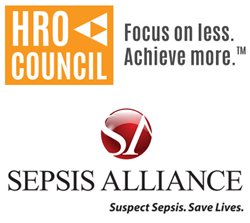 “Everyone is doing sequencing, but most people aren’t able to analyze their sequences as well or as quickly as they might want to,” Bedford said. “We’re trying to fill in this gap so that the World Health Organization or the U.S. Centers for Disease Control and Prevention — or whoever — can have better analysis tools to do what they do. We’re hoping that will get our software in the hands of a lot of people”...
“Everyone is doing sequencing, but most people aren’t able to analyze their sequences as well or as quickly as they might want to,” Bedford said. “We’re trying to fill in this gap so that the World Health Organization or the U.S. Centers for Disease Control and Prevention — or whoever — can have better analysis tools to do what they do. We’re hoping that will get our software in the hands of a lot of people”...
U.S. Centers for Disease Control and Prevention (CDC)
See the following -
HealthMap Co-Founder And Prominent Epidemiologist Dr. John Brownstein To Deliver Keynote At 2014 mHealth Summit Focused On Ebola Outbreak, Epidemics And Public Health Surveillance
The mHealth Summit today announced that John Brownstein, PhD...Co-Founder of HealthMap, will deliver a keynote address at the 6th annual Summit on December 10...HealthMap is a global leader in using online informal sources for disease outbreak monitoring and real-time surveillance of emerging public health threats...The HealthMap software spotted the West African Ebola epidemic nine days before the World Health Organization (WHO) announced it, triggering a global response. Read More »
- Login to post comments
Is U.S. Health Care Unprepared For Ebola?
The U.S. health care apparatus is so unprepared and short on resources to deal with the deadly Ebola virus that even small clusters of cases could overwhelm parts of the system, according to an Associated Press review of readiness at hospitals and other components of the emergency medical network...
- Login to post comments
Lassa Fever: Why There Are More Public Health Questions Than Answers [Sierra Leone]
The Lassa virus can wipe out entire families. It is transmitted by rats and is endemic to west Africa – so why is there no vaccine? Lina Moses shares her experiences of working in Sierra Leone...
- Login to post comments
Offspring Autism Risk Linked To Pesticide Exposure During Pregnancy
...[A] new study from the MIND Institute at the University of California-Davis suggests that expectant mothers who live near fields and farms where chemical pesticides are applied are also at increased risk of having a child with autism or other forms of developmental delay...
- Login to post comments
Open Science Prize Goes to Software Tool for Tracking Viral Outbreaks
- Login to post comments
Second MERS Case Shows Hospitals Are Ground Zero For MERS
The patient started feeling ill as he sat on a packed flight from Jeddah to London. Things didn’t get any better after he boarded another flight to Boston, or a third flight to Atlanta, or even as he took one last miserable leg to Orlando...
- Login to post comments
Significant Threats to Patient Safety from Healthcare Provider Overload and Burnout Must be Addressed
 Sepsis Alliance and the High Reliability Organization Council (HROC), two leading national advocates for patient safety, are raising the alarm on shortages in healthcare personnel, and the increase in data overload and medical provider burnout that is putting more and more patients at risk. Examples include long wait times to get appointments (which affects access to care), misdiagnoses that delay care, wrong-site surgeries, and other safety failures...
Sepsis Alliance and the High Reliability Organization Council (HROC), two leading national advocates for patient safety, are raising the alarm on shortages in healthcare personnel, and the increase in data overload and medical provider burnout that is putting more and more patients at risk. Examples include long wait times to get appointments (which affects access to care), misdiagnoses that delay care, wrong-site surgeries, and other safety failures...
- Login to post comments
Some U.S. Hospitals Weigh Withholding Care To Ebola Patients
The Ebola crisis is forcing the American healthcare system to consider the previously unthinkable: withholding some medical interventions because they are too dangerous to doctors and nurses and unlikely to help a patient. U.S. hospitals have over the years come under criticism for undertaking measures that prolong dying rather than improve patients' quality of life...
- Login to post comments
Special Report - The World Health Organization's Critical Challenge: Healing Itself
For years the WHO has talked about streamlining its complex structure, governance and financing to make it more efficient. Critics say the organisation needs deep reforms to allow it to show clear leadership in promoting health and to respond decisively to disease emergencies that may span many countries. But progress has been painfully slow...
- Login to post comments